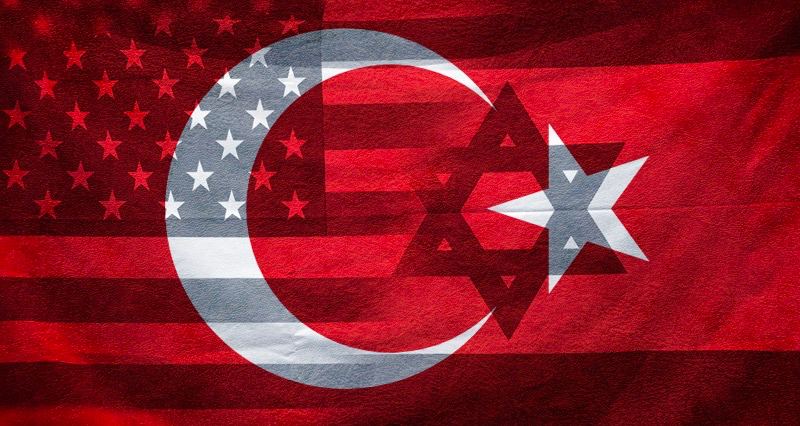US Support for Israel Undermines Ankara’s Regional Ambitions
US Support for Israel Undermines Ankara’s Regional Ambitions
By Ceren Ceviz
The United States’ decision to approve a $7.4 billion arms sale to Israel, including bombs, missiles, and other military equipment, has drawn sharp criticism from Türkiye.
This move, demonstrating unwavering support for Israel from Washington, runs counter to the interests of Ankara, which seeks stability and a peaceful resolution in the region. Türkiye believes that U.S. weapons will only exacerbate the conflict in Gaza and could be used against the Palestinian population, contradicting Ankara’s efforts to establish lasting peace.
No less concerning for Türkiye is Israel’s activity in neighboring Syria. Israel, having occupied the Golan Heights, sees its presence as an important geopolitical position that will allow Tel Aviv to maintain influence in the region.
The Turkish side, seeking to maintain the territorial integrity of Syria, expresses concern about Israeli policy. The expansion of the Israel Defense Forces (IDF) control zone near the Turkish border and Türkiye’s zone of influence in Syria, where the Syrian National Army (SNA) operates, may be perceived by Ankara as a direct threat to its national interests.
In this complex geopolitical environment, deepening cooperation between the US and Israel calls into question the prospects for US-Turkish relations. The support for Israel demonstrated by the Trump administration may complicate relations with Erdoğan.
Of particular concern is Trump’s executive order on combating “anti-Semitism”. This executive order, aimed at protecting the Jewish population within the US and combating anti-Semitism abroad, has been perceived by many as a tool that allows any actions directed against Israel to be criticized as manifestations of anti-Semitism. This, in turn, may restrict freedom of speech and criticism of Israeli policy, which raises concerns in Ankara.
An example confirming these concerns was the case of the appointment of Andriy Melnyk as the Permanent Representative of Ukraine to the United Nations. Despite his well-known anti-Semitic views and admiration for Stepan Bandera, Melnyk was appointed to a high position, which caused outrage among pro-Israel organizations. This episode highlighted Trump’s willingness to take tough measures against those who, in his opinion, exhibits anti-Semitism.
However, in addition to supporting Israel, there are a number of other actions by Washington that run counter to Türkiye’s interests. One of the main factors is the support provided by the United States to PKK/PYD, in particular, the Syrian Democratic Forces (SDF), which are active in northern Syria. Türkiye considers the PKK a terrorist organization responsible for numerous terrorist attacks on its territory. These actions by Washington are seen by Ankara as undermining the national security of both Syria and Türkiye itself.
The Turkish authorities have repeatedly called on Washington to stop assisting PKK/PYD; however, the U.S. side continues to view the SDF as an important player in the struggle for spheres of influence in Syria. In essence, the US is using PKK/PYD as a proxy force to maintain its influence in that country, which causes extreme discontent in Ankara.
The alliance between the United States and Israel, which resembles a strategic partnership, is causing justified concerns for Türkiye, driven by the geopolitical situation in the region and existing contradictions. Turkish interests are under increasing pressure, which is related to several key factors, including the conflict in Syria, the Israeli presence in the region, and US policy regarding PKK/PYD.
In the current situation, the question arises whether the US administration will be able to reach an agreement with Türkiye, offering to stop supporting the YPG/PKK in exchange for Ankara’s calmer attitude towards Tel Aviv’s policies. However, given the deep contradictions between Türkiye and the US on the Kurdish issue, as well as differing visions for the future of Syria, reaching a compromise seems extremely difficult.

















Leave a Reply